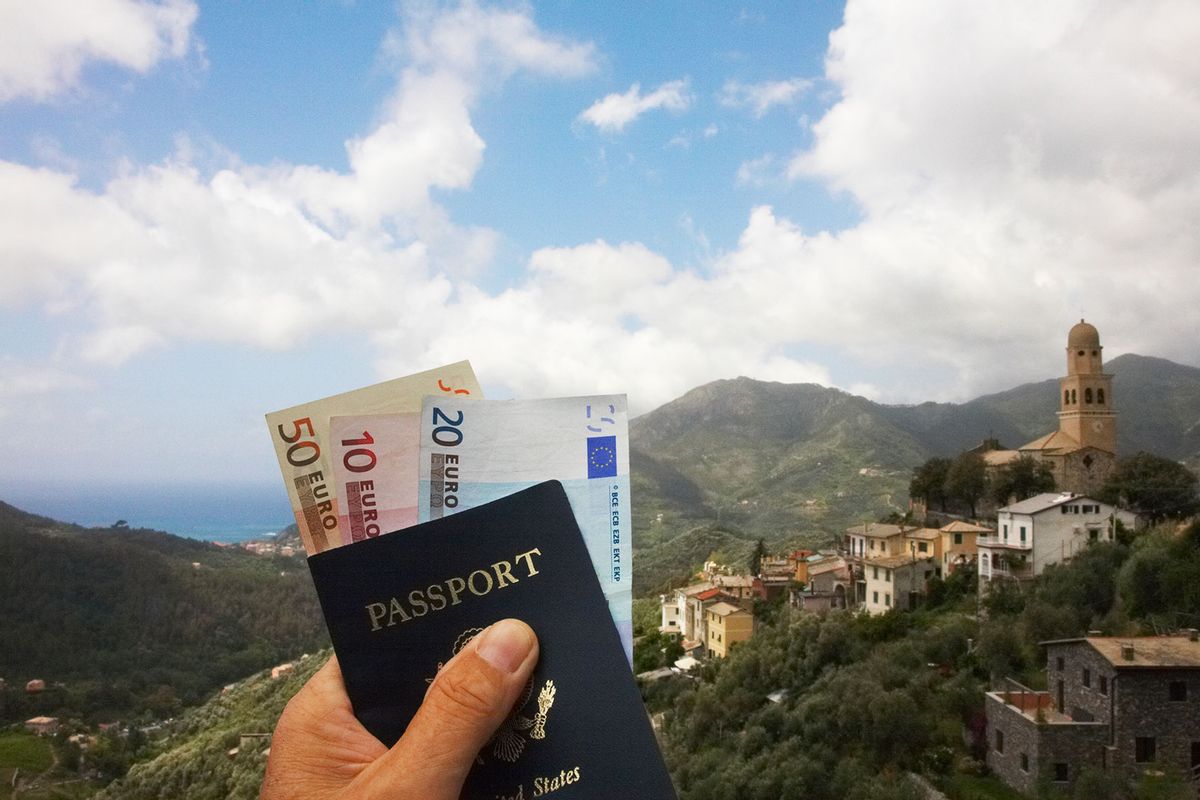The dream of packing up and starting anew in another country picked up steam among many Americans following the reelection of former President Donald Trump, with Google searches soaring in the 24 hours after polls closed.
But for many of the most popular destinations among prospective expats, the process of immigrating from the U.S. without a work visa — as well as a significant amount of cash on hand — can be quite difficult. Here are some of the costs associated with moving to a few of these locales, as well as other expenses associated with an international move.
Canada
For most, the way into Canada is through the Express Entry program. Applicants need to have a certain amount of cash savings — or what Canada calls “settlement funds” — to apply for Express Entry. A single person needs to demonstrate they have at least $14,690 CAD, or $10,548.08 in U.S. dollars, while a couple would need $13,131.61 USD. A family of four would need at least $19,600.47 USD to be considered.
For those with enough cash, the first step is filling out the Express Entry application. Each applicant is assigned a point-based score, known as a Comprehensive Ranking Score (CRS), based on factors including their age, work experience, education, proficiency in English or French, and how much money they have on hand. Most Express Entry applications are usually processed within six months. From there, the Canadian government ranks applicants and invites the highest-ranking ones to apply to immigrate.
Applying for Express Entry costs $1,088.06 USD, but individuals can expect to spend around $1,600, according to Canadim, a Quebec-based immigration law firm. Those other costs include an educational credential assessment (around $142), a language test ($214), biometrics ($60), a medical exam fee ($320) and a police clearance certificate, which costs around $70.
United Kingdom
Like Canada, the United Kingdom doesn’t offer visas for individuals hoping to move there without a job offer, acceptance into a university or a plan to start a business — and invest significant capital — in the country. (For individuals who graduated from a qualifying university in the last five years, applying for a High Potential Individual visa is an option.)
We need your help to stay independent
If you have an employer willing to sponsor your relocation to the UK, you can apply for a Skilled Worker visa. The application fee can range from 719 to 1,639 Euro, or between $759 and $1,731. There’s also a health surcharge fee (approximately $1,093). You’ll also need to have at least 1,270 Euro, or $1,341, on hand to demonstrate your ability to support yourself in the UK.
And like the U.S.'s “extraordinary ability” work visa, the UK offers a Global Talent visa program for “leaders or potential leaders” in the fields of academia or research, arts and culture, or digital technology.
Japan
Japan isn’t particularly easy to immigrate to without a work visa. You’d need either a U.S.-based employer to sponsor your relocation or you’d need a job offer from a company based in Japan.
The cost of applying for a single-entry visa into Japan – meaning, you could only enter the country once – is 3,000 yen, or around $20 USD. With a single-entry visa, visitors can stay in Japan for up to 90 days. There’s also a double entry or multiple entry visa; that application costs $43. Those visas allow individuals to travel into and out of Japan for a maximum period of five years.
Japan is also one of more than 60 countries that offers a digital nomad visa, which allows remote workers to legally live in the country for up to one year. Applicants need to prove they earn at least $65,330 from their remote job, and the cost of applying for the visa is around $20.
Italy
Italy’s made headlines in recent years on this subject; the country’s home to a handful of programs that will pay to move to a certain town or region. One such incentive offers potential residents up to $32,000 in payments toward living in and renovating a home in a small town in Tuscany.
Otherwise, the most straightforward route is likely applying for a national visa, intended for those who plan to stay in Italy longer than 90 days. The cost of applying is $127.30. Italy also offers a digital nomad visa, though applicants must be able to prove they have at least $31,000 in savings. Applying costs roughly $126.
Other options
More than 60 countries have recently introduced digital nomad visa programs, which typically last between six months and a year. In Spain, Portugal and Thailand, the visa can be renewed for up to five years.
While many of the most popular destinations for Americans are not easy to move to, there are plenty of other countries that make it easier. Countries like Panama, Mexico and Thailand welcome a large number of expats without requiring them to demonstrate steep cash savings.
More than just visa costs
Obtaining the appropriate visa is just a fraction of the cost of an international move. If you’ll be holding onto most of your belongings and furnishings, you’ll need to ship those abroad, too. Depending on how much you have to move, as well as whether you ship via air or on an ocean freight, shipping goods overseas can range from $1,000 to upwards of $10,000 (the latter cost represents moving a larger home’s furnishings).
There’s also the cost of the flight; on average, a one-way international plane ticket costs around $1,400, according to Angie’s List. If you’ll be transporting pets, you can expect to pay between $500 to upwards of $1,000, depending on their size and your final destination.
Read more
about personal finance



Shares